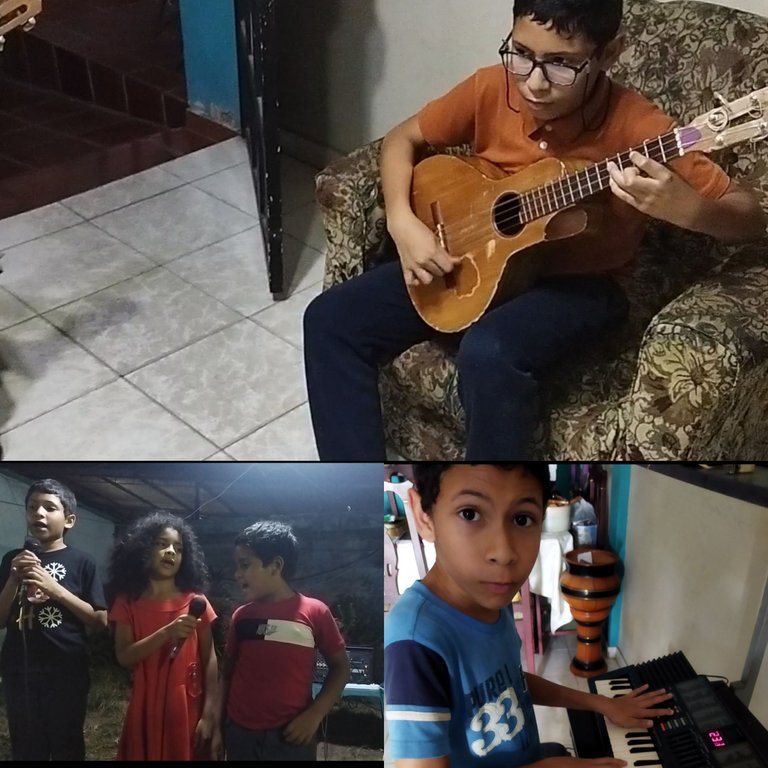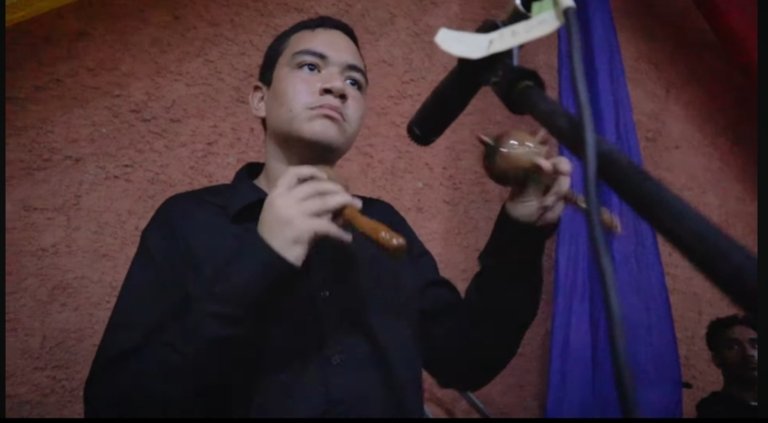En estos días escuché una historia contada por mi hijo, en la que me decía, que le había aconsejado a una joven, a quien le gusta la música, que tocara un instrumento, porque le diera la gana, no porque sus padres o profesores se lo pidieran o por cualquier otra exigencia externa.

La expresión que podría sonar un poco grotesca, tiene el basamento de que lo que hacemos, porque se nos da la gana trae una fuerza implícita, un deseo personal fuerte. Luego me decía mi hijo que la joven le había dicho que estaba estudiando música y le había agregado y lo hago «porque se me dio la gana, profe».
Me quedé analizando la expresión y me puse a revisar cuántas cosas en la vida uno las realiza porque tiene que hacerlas, porque hay un deber, una obligación, porque no hay más remedio; pero no porque salga de la propia voluntad, entonces, estaría bien enseñar a los niños a reconocer esa fuerza interior y a tener, sobre todo, esa voluntad, esas ganas de hacer, que los impulsen a practicar un deporte, a seleccionar un oficio, a escoger un arte, entre tantas actividades.
Con frecuencia veo niños y jóvenes que aborrecen la escuela, y con razón, están desmotivados, la situación del caso venezolano que no da un incentivo, un estímulo, para que el niño quiera ir al colegio, es evidente . Ellos van obligados, a regañadientes, a veces a ser atendidos por una suplente, porque la maestra tampoco asiste.
Es una lista innumerable de elementos que hacen que la educación formal no esté en su mejor momento. Los niños quieren tener en sus manos un teléfono, o estar frente a la computadora, o un Smart TV. Eso les da la gana, pero no hay otra actividad externa que los motive, por supuesto, con sus excepciones.

En un hogar donde se practique algún oficio diferente al común, los niños que allí convivan, participarán de esas actividades y pueden llegar a pensar que eso se hace en otras casas, es lo que ocurre donde habitan los músicos o los artesanos, por poner solo dos ejemplos.
Otros niños cuyos padres se van a trabajar desde la mañana y quedan con algún familiar, generalmente la abuela, o alguna otra persona que los cuida, cuando no son llevados a esos lugares de reforzamiento pedagógico o tareas dirigidas; suelen manifestar aburrimiento o fastidio por un sistema, que no ofrece una metodología que motive.
A estos niños y jóvenes, habría que invitarlos a escudriñar en diferentes quehaceres, que podrían constituirse en un futuro, en sus oficios preferidos, para poder decir en algún momento: «pinté ese cuadro porque se me dio la gana», «hice ese jarrón porque se me dio la gana», «realicé una arquería para jugar fútbol porque se me dio la gana»; «elaboré un par de pesas porque se me dio la gana» y otras tantas.

La expresión puede ser chocante si se le espeta a otro, pero para sí mismo, es asumir poderío. Yo soy feliz porque me da la gana
Gracias por tu amable lectura.
Mi contenido es original.
He utilizado el traductor de Google.
Imágenes propias. Momentos musicales de dos de mis nietos.

English Version
I am happy because I feel like it.
These days I heard a story told by my son, in which he told me that he had advised a young woman who likes music to play an instrument because she wanted to, not because her parents or teachers told her to. requested or by any other external requirement.

The expression that might sound a little grotesque, has the basis that what we do, because we feel like it, brings an implicit strength, a strong personal desire. Then my son told me that the young woman had told him that she was studying music and had added and I do it "because she felt like it, teacher."
I kept analyzing the expression and I began to review how many things in life one does because one has to do them, because there is a duty, an obligation, because there is no other choice; but not because it comes from one's own will, so it would be good to teach children to recognize that inner strength and to have, above all, that will, that desire to do things, that drives them to practice a sport, to select a job, to choose an art, among so many activities.
I frequently see children and young people who hate school, and with good reason, they are unmotivated. The situation in the Venezuelan case does not provide an incentive, a stimulus, for the child to want to go to school, it is evident. They are forced, sometimes reluctantly, to be attended to by a substitute, because the teacher does not attend either.
It is an innumerable list of elements that make formal education not at its best. Children want to hold a phone in their hands, or be in front of the computer, or a Smart TV. They feel like it, but there is no other external activity that motivates them, of course, with its exceptions.

In a home where a trade other than the common one is practiced, the children who live there will participate in those activities and may come to think that this is done in other houses, this is what happens where musicians or artisans live, to put it simply. Two examples.
Other children whose parents go to work in the morning and stay with a family member, generally the grandmother, or some other person who cares for them, when they are not taken to those places for pedagogical reinforcement or directed tasks; They often express boredom or annoyance with a system that does not offer a motivating methodology.
These children and young people should be invited to explore different tasks, which could become their favorite jobs in the future, to be able to say at some point: "I painted that picture because I felt like it," "I made that vase." because I felt like it", "I made a goal to play soccer because I felt like it"; "I made a couple of weights because I felt like it" and many others.

The expression may be shocking if it is said to another, but for oneself, it is assuming power. I am happy because I feel like it
Thank you for your kind reading.
My content is original.
I have used Google translator.
Own images. Musical moments from two of my grandchildren.
